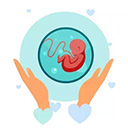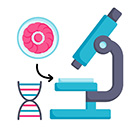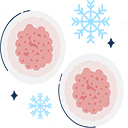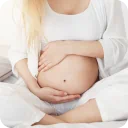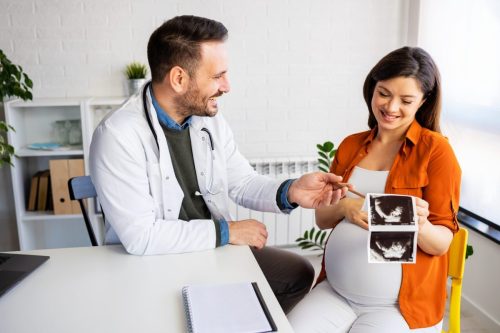
Age-Related Fertility Decline: What You Need to Know from a Fertility Specialist
When I first started practicing as a fertility specialist, one of the most common questions I would hear from patients was, “Can I still have a baby at 35? What about 40?” As I’ve gained more experience, I’ve realized that this question often comes with a lot of emotion. It’s not just about biology; it’s about hope, dreams, and the ticking of the biological clock.
Over the years, I’ve seen firsthand how age impacts fertility, and the changes can be more complex than many people realize. In this article, I’m going to share what I’ve learned about age-related fertility decline, including how it affects egg quality, how to manage expectations, and the options available for women who want to start a family later in life.
Understanding Age and Fertility
I’ll never forget one particular patient, Sarah, who came to me at 42. She’d spent most of her adult life focusing on her career, and now, after meeting the right partner, she wanted to start a family. Despite having regular cycles and a healthy lifestyle, Sarah was worried. She knew that fertility tends to decline as women age, but what does that really mean?
It’s common knowledge that fertility starts to drop in the late 20s or early 30s, but the reality is a bit more nuanced. The most significant drop happens after the age of 35, and it continues to decline more rapidly after 40. This is largely because the quantity and quality of a woman’s eggs decrease over time.
Dr. Susan Johnson, a renowned reproductive endocrinologist, explains, “By the time a woman reaches her early 40s, the number of viable eggs has significantly reduced, and the risk of chromosomal abnormalities increases, making conception more challenging.” This is something I see every day in my practice. Women who are in their late 30s or early 40s may still be able to conceive, but the process can take longer, and the chances of miscarriage can increase.
The Biological Clock: What It Means for Egg Quality
One of the most important things to understand about age-related fertility decline is how it affects egg quality. It’s not just about having fewer eggs; it’s about having older eggs. Think of it like a used car. The car might still run, but it’s more likely to break down, and it may not be as efficient as when it was new. The same is true for eggs. As women age, their eggs are more likely to have chromosomal abnormalities, which can lead to conditions like Down syndrome, or result in a miscarriage.
Dr. William Harris, an expert in IVF (in vitro fertilization), told me, “The good news is that modern medicine has come a long way in helping women conceive later in life. With IVF, egg freezing, and genetic screening, we’re able to increase the chances of a successful pregnancy.” Still, even with these advanced technologies, age remains a major factor, and it’s important to set realistic expectations.
Options for Women Over 35
So, what are the options for women who want to have children after 35? There are several approaches that can help, depending on individual circumstances.
- Egg Freezing: One option gaining popularity is egg freezing, or oocyte cryopreservation. This allows women to freeze their eggs when they are younger and use them later when they’re ready to conceive. While not all women will need this, it’s a good option for those who want to delay pregnancy for personal or professional reasons.
- In Vitro Fertilization (IVF): If a woman is over 40 and struggling with fertility, IVF may be the best route. During IVF, eggs are retrieved, fertilized in a lab, and then implanted in the uterus. Success rates vary depending on age, but even women in their 40s can have successful pregnancies through IVF.
- Donor Eggs: For women over 40 whose own eggs may not be viable, using donor eggs can increase the chances of a healthy pregnancy. This may sound daunting to some, but it’s an incredibly effective option and has helped many women achieve their dreams of motherhood.
- Lifestyle Adjustments: While age is a huge factor, there are also things women can do to optimize their fertility, including maintaining a healthy weight, exercising regularly, eating a balanced diet, and avoiding smoking and excessive alcohol use. These lifestyle changes can improve your chances of conception, even as you age.
The Emotional Side of Age-Related Fertility Decline
I can’t talk about age-related fertility decline without addressing the emotional aspect. Women often come to me feeling a mix of anxiety, fear, and even guilt. They wonder if they waited too long. I always remind them that everyone’s fertility journey is different, and while age does affect fertility, it’s not a guarantee that pregnancy is impossible. I’ve had patients who successfully conceived at 43, and others who struggled, even with IVF.
One patient, Emily, shared with me, “I was heartbroken when I realized that my chances were lower than I thought. But hearing that I had options, and that age wasn’t necessarily the end of the road, gave me so much hope.”
That’s something I try to stress with all my patients: age is a factor, but it’s not the only factor. There’s a lot that can be done to help, and fertility treatment has advanced in ways that offer more options than ever before.
The Takeaway: It’s Never Too Late, but Timing Is Key
As a fertility specialist, my biggest piece of advice for women considering motherhood later in life is to start the conversation early. The sooner you can get an assessment of your fertility, the better. If you’re planning to start a family in your 30s or 40s, it’s important to be proactive about your health and fertility options.
The reality is that age affects fertility, but with the right support, knowledge, and medical intervention, it’s still possible to have a child later in life. Whether it’s freezing eggs when you’re younger, using IVF, or even donor eggs, there are more paths to parenthood than ever before. I’ve seen countless patients achieve their dreams of having a family after 40, and it’s one of the most rewarding parts of my job.

